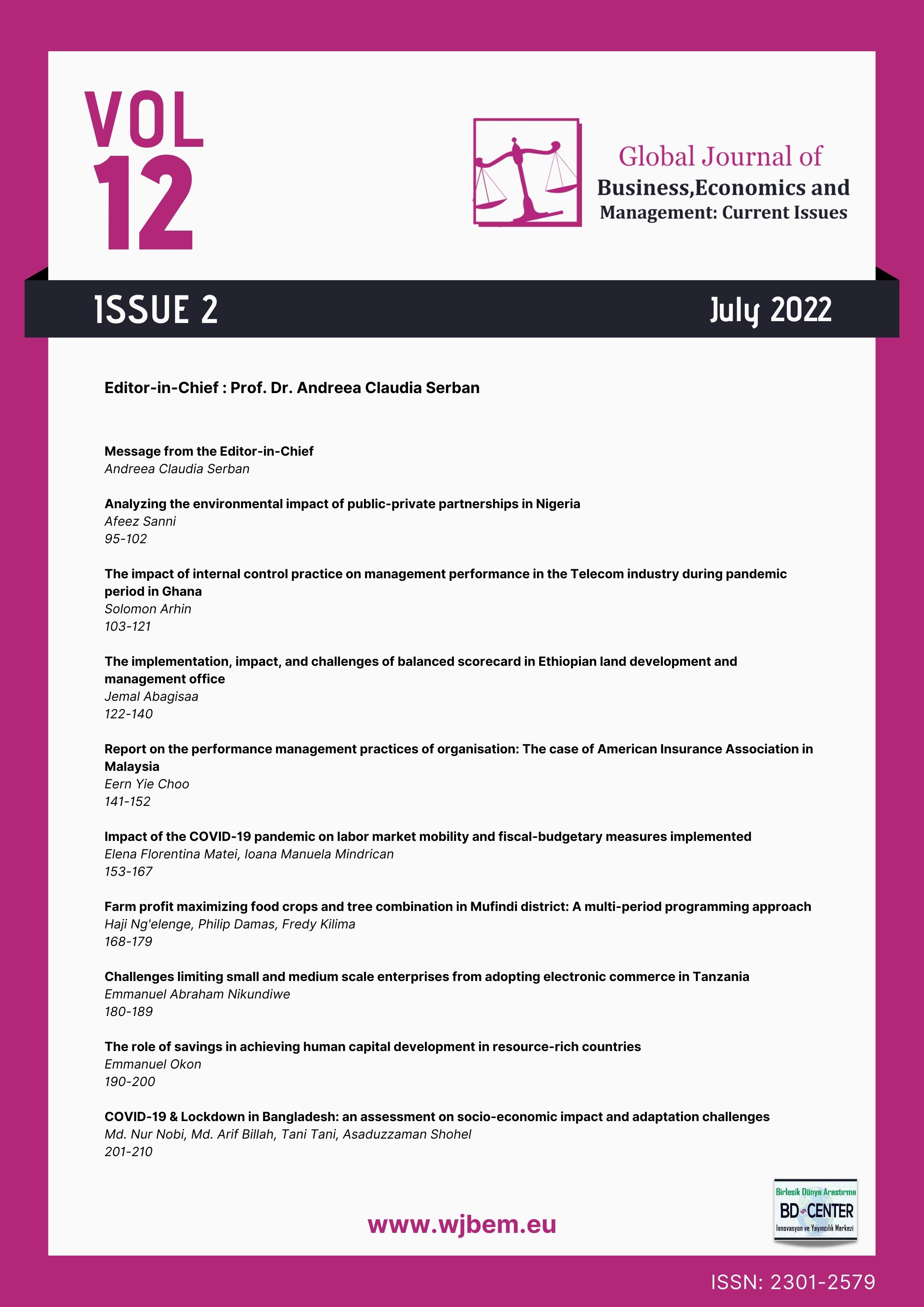The implementation, impact, and challenges of balanced scorecard in Ethiopian land development and management office
Main Article Content
Abstract
The purpose of this study is to examine BSC implementation, contribution, and challenges encountered in Addis Ababa concerning Kolfe-keranyo Sub City Land Development and Management office. The study adapted a concurrent mixed-method approach, descriptive research design, primary and secondary data source, and probability and non-probability sampling techniques, to achieve the objective of the study. A five-point Likert scale questionnaire and structured interview were used as a data collection tool. The questionnaire was administered to employees and an interview was held with leaders. The findings of the study generally indicate that the contribution of a balanced scorecard in measuring service performance in land management is minimal because performance indicators are poorly designed, standards are unrealistic, which ignores the nature of the service, and performance data is not properly recorded. Finally, the study presented some recommendations, including redesigning the scorecard, setting realistic time standards, allocating adequate resources, strengthening training and awareness programs, and strong leadership support and commitment.
Keywords: Balanced Scorecard; land management; performance.
Downloads
Article Details

This work is licensed under a Creative Commons Attribution 4.0 International License.
The Global Journal of Business Economics and Management: Current Issues is an open-access journal. The copyright holder is the author or authors. Licensee: Birlesik Dunya Yenilik Arastirma ve Yayincilik Merkezi, North Nicosia, Cyprus. All articles can be downloaded free of charge. Articles published in the Journal are Open-Access articles distributed under the CC-BY license [Attribution 4.0 International (CC BY 4.0)].

